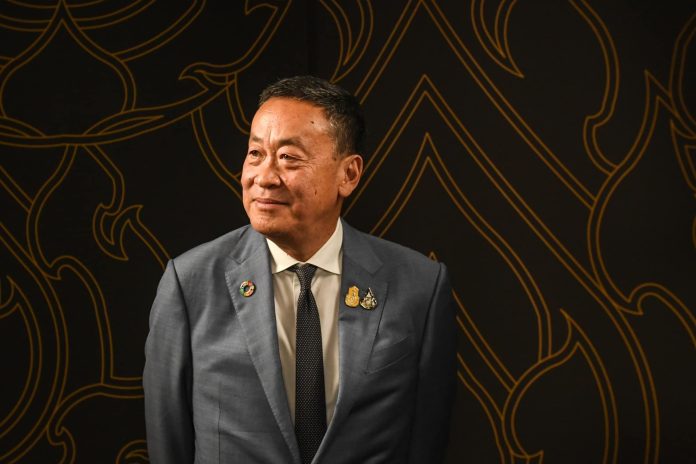Thailand’s prime minister, Srettha Thavisin, recently made a big announcement that has received a lot of praise and support in an amazing show of selflessness and leadership. He declared that he will donate the significant 125,590 baht that makes up his monthly income to different charitable organizations instead of using it for himself while serving as prime minister. By putting compassion and social responsibility into practice, Prime Minister Srettha’s outstanding move not only demonstrates his dedication to the welfare of his fellow citizens but also sets an inspiring model of leadership.
The Prime Minister’s Office spokesperson, Chai Watcharong, emphasized the important message that Prime Minister Srettha’s choice sent. Giving to others and supporting charitable organizations, according to Chai, is a universal ethic that transcends selfish interests. At sixty-one, Prime Minister Srettha started this humanitarian project by setting an example and giving away his full allowance and income each month to nonprofits.
When examining the Prime Minister’s financial gesture in more detail, it’s crucial to remember that his salary and position allowance total 75,590 baht each month. Any additional stipend he could get for attending Cabinet meetings or other official duties is not included in this amount.
Prime Minister Srettha, who was raised in the fast-paced city of Bangkok, explained his reasoning for donating his income. He acknowledged that, in certain cases, people in need of immediate financial assistance may find it more helpful to do so than to wait for the drawn-out bureaucratic procedures involved in allocating funds and putting policies into place.
Chai gave more details about the distribution of the Prime Minister’s pay contributions. It was revealed that these monies would be distributed to various nonprofits that satisfy particular requirements, guaranteeing that the contributions are used toward respectable and worthy causes. The Foundation for Children, an organization committed to enhancing the lives of young and vulnerable people, was the first beneficiary to be recognized.
The unique aspect of Prime Minister Srettha’s charitable endeavor is his own participation in it. He stated that he intended to visit each of the recipient groups and hold discussions in order to better understand their needs and concerns. This hands-on approach shows the Prime Minister’s sincere desire to ensure that the monies are spent effectively and efficiently, as well as his dedication to making a beneficial impact.
In the event that Prime Minister Srettha serves out his entire four-year tenure, more than six million baht will have been donated to humanitarian causes. This large amount has the ability to greatly enhance the lives of many people and underprivileged communities, promoting compassion and solidarity across the country.
Prime Minister Srettha said, “I did this because I am not the PM,” in his own humble words. That is what I myself intend to do. I want to provide financial support to a group of persons in need. It’s not really much. All I want to do is handle it alone. I will never compel other public servants to do as I say. Each of them has a weight. The funds will be distributed to respectable groups who comply with the guidelines.
The remarkable deed of generosity by Prime Minister Srettha Thavisin is a brilliant example of conscientious and caring leadership. In addition to meeting immediate needs, his choice to give his salary and work closely with nonprofits conveys a strong message about the value of giving back to society. It shows that in addition to governing and enacting laws, leaders can have a significant impact by their own deeds and dedication to the welfare of their fellow residents.
In addition, he places a strong focus on transparency and integrity when choosing recipient groups, which guarantees that the money will be used effectively and builds public faith in charity endeavors. The altruistic deed of Prime Minister Srettha upholds the value of public servants placing the welfare of the people they serve first and promotes a culture of giving.
Prime Minister Srettha Thavisin’s choice to donate his salary is a wonderful reminder of the great influence leaders can have when they lead with empathy and compassion in a world where leaders are frequently questioned for their decisions and actions. His commitment to really improving the lives of the less fortunate sets a high standard for leaders everywhere and gives rise to optimism for a society that is more just and compassionate.
To sum up, Prime Minister Srettha Thavisin’s choice to donate his salary to charity instead of keeping it for himself is evidence of his dedication to the welfare of the Thai people. It exemplifies empathy, social duty, and selflessness, presenting an amazing model of leadership for the country and the rest of the world to emulate. His deeds are a sign of hope and a reminder that, when motivated by the virtues of empathy and altruism, leadership may have a significant and constructive influence.


